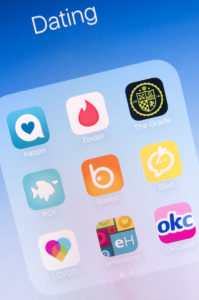** Popular Match Making App Tinder Loses on Second Bite To Defeat Gender-Bias Class Action **
By: Brent E. Johnson

The popular geo-location dating application Tinder was rebuffed in its latest attempt to have a putative California class action complaint against it dismissed. Manapol. v. Tinder, No. BC589036, (Sup. Ct. L.A. County) (filed April 28, 2015). The complaint alleges that Tinder illegally discriminated against Plaintiff by charging him more than a similarly situated woman (for the Tinder Plus service) and therefore violated California’s Unruh Civil Rights Act. Id. Earlier this year, Plaintiff’s initial complaint was dismissed without prejudice for his failure to “connect the dots” on the facts. Id. (Order and Opinion, Feb. 17, 2016). The court held that Plaintiff’s complaint was built on his naked (pun intended) allegation that a female friend’s Tinder Plus bill was lower than his, which, (even if were true) was merely an isolated event and, therefore, insufficient to show a pattern of price discrimination based on gender. Plaintiff returned with an amended complaint alleging that the disparate pricing he experienced was not a one-off occurrence – but embedded in the algorithms at the heart of the functionality of Tinder Plus.
Superior Court Judge William F. Highberger rejected Tinder’s demurrer to this amended complaint, holding that Plaintiff’s allegations were adequately pled. Id. (Order and Opinion, July 21, 2016). In an oral argument (which we would have paid money to attend), the parties went back and forth with Judge Highberger over whether Tinder engages in gender discrimination with Tinder offering the declaration of a company employee that Tinder does not discriminate in its pricing for Tinder Plus or the number of free swipes a user gets on Tinder – and Plaintiff asserting he has his own contrary facts and will be able to obtain more evidence from Tinder. Clearly, a fight is brewing over the discoverability of Tinder’s trade secret algorithms.
The most surprising thing about this lawsuit for those who are unversed in California’s Unruh Civil Rights Act is that, even accepting the allegations as true, the complaint states a claim. Long before Ronald Bell of Kool & the Gang penned his immortal 1979 ballad (best performed by Jon Lovitz in the Wedding Singer), of the same name, “Ladies Night” was a ubiquitous part of American nightlife. But ironically, at about the same time the song reached its zenith at #8 on the Billboard Hot 100, a gentleman by the name of Dennis Koire was visiting Orange County car washes asking for the advertised “Ladies’ Day” discount and the Jezebel Nightclub in Anaheim demanding the “Ladies’ Night” reduced admission, all to no avail. The lawsuit he filed made it to the California Supreme Court in 1985, where the Court put the kibosh on Ladies Night in Koire v. Metro Car Wash, 40 Cal.3d 24 (1985), holding that such discounts violate the Unruh Act’s requirement that “[a]ll persons within the jurisdiction of this state are free and equal, and no matter what their sex . . . are entitled to the full and equal accommodations, advantages, facilities, privileges, or services in all business establishments of every kind whatsoever . . . .” Cal. Civil Code §51. Jezebel’s owner argued that the “social policy” exception applied in other Unruh Act cases was warranted in his case because “’Ladies Night’ encourages more women to attend the bar, thereby promoting more interaction between the sexes.” Koire, 40 Cal.3d at 33. The Court found this argument “not sufficiently compelling.” Id. Although such an argument is not likely to assist Tinder — if in fact it does gender discriminate as Plaintiff alleges — the California Supreme Court might want to reconsider its rejection of Jezebel’s social policy argument. In a world of millennials (and seniors!) looking for love on their laptop screens, there may be social utility in encouraging live interaction between Californians.

